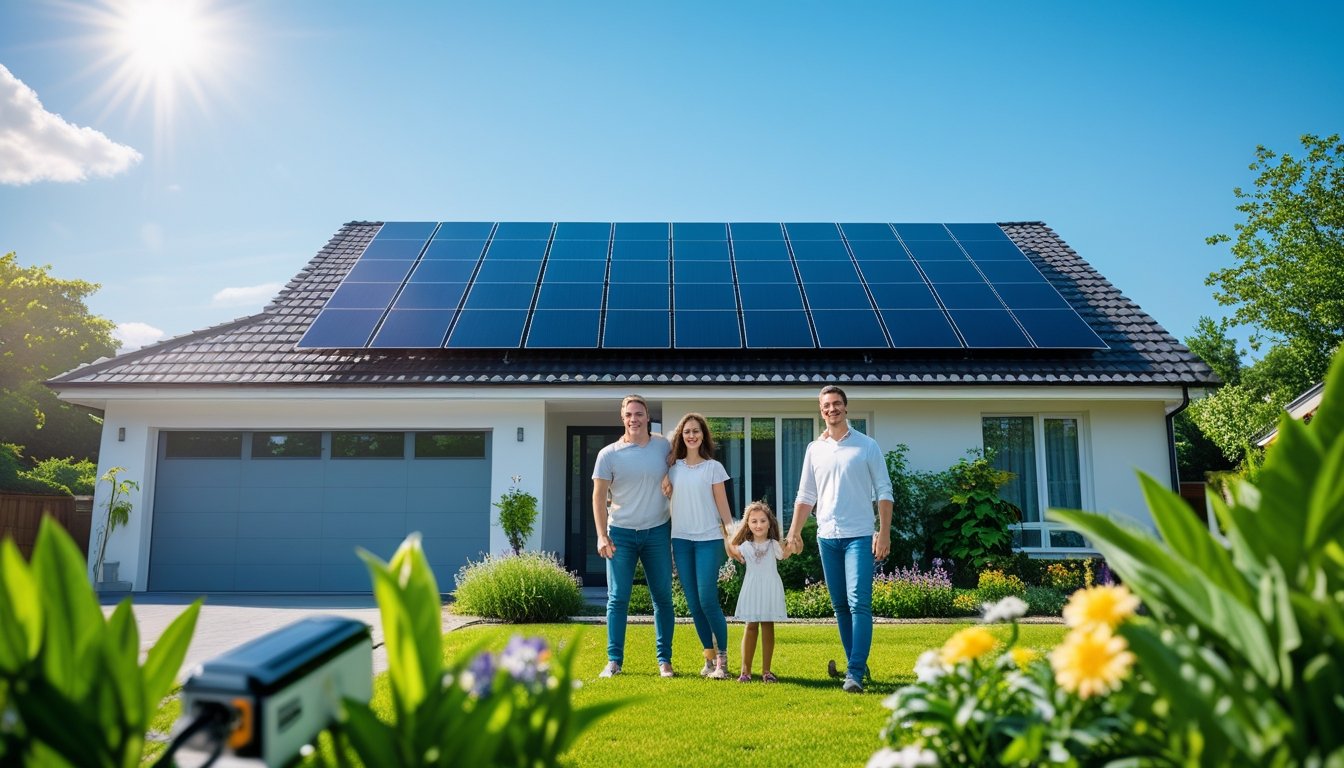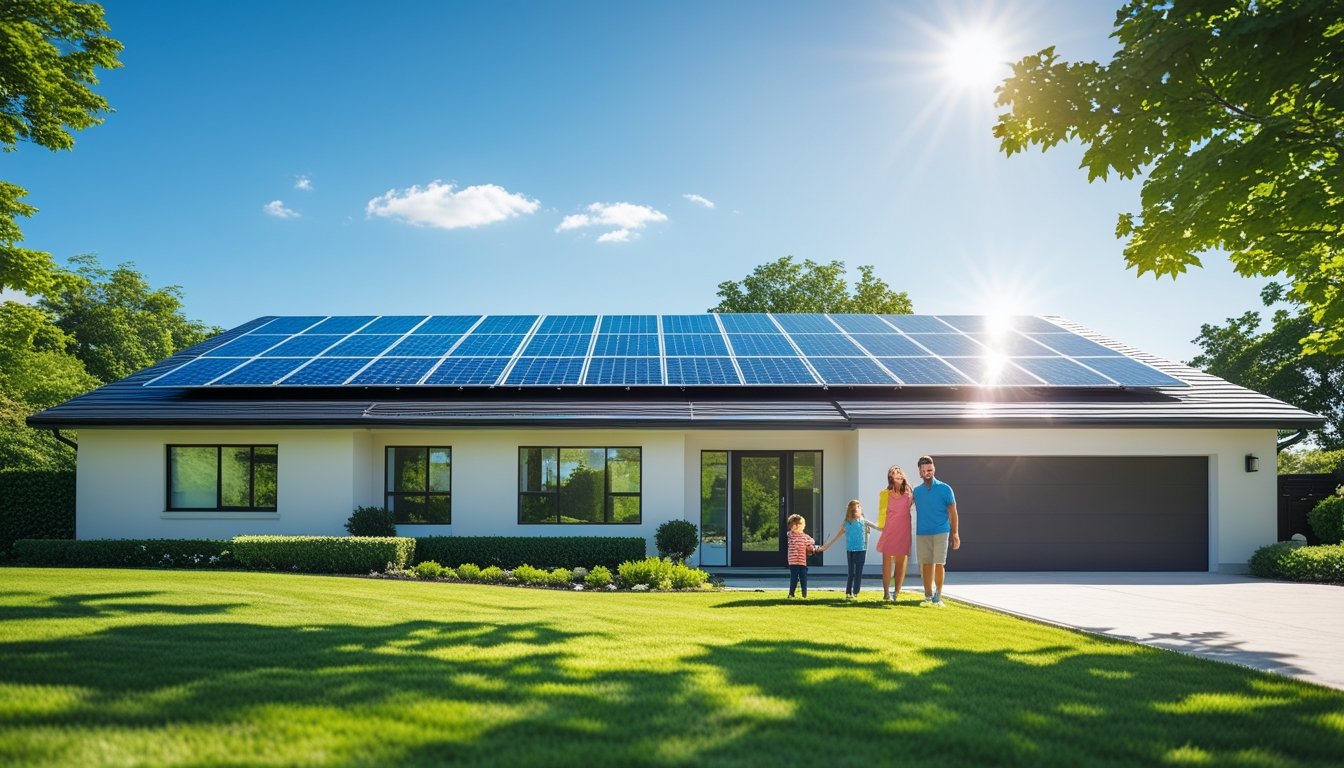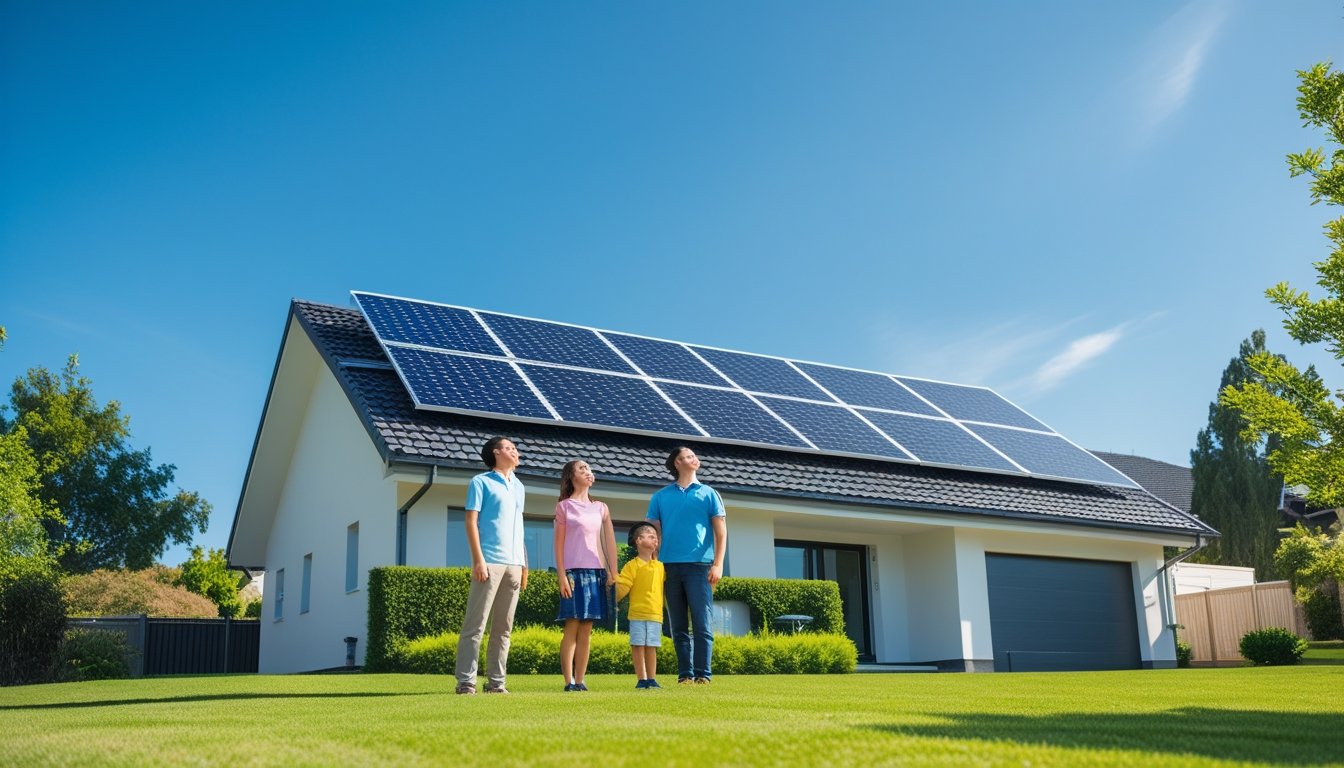Late updated: 17 Jun 2025 15:06
Written by: Sarah Hollister
Benefits Of Using Solar Panels At Home: A Sustainable Energy Solution
In today's world, where environmental concerns and energy costs are at the forefront of homeowner priorities, installing solar panels stands out as a smart and sustainable solution. As more of us seek to harness renewable energy, the decision to adopt solar technology is becoming increasingly appealing. Solar panels offer a dual advantage of reducing electricity bills while promoting environmental sustainability.

Beyond just savings, solar panels provide us with a sense of independence from the traditional energy grid. This capability is particularly beneficial during power outages, offering a reliable backup to keep our homes running. The investment in solar technology not only pays off in financial terms but also contributes to a greener and more resilient energy future.
While the upfront costs may seem daunting, the long-term benefits are significant. It's an investment in the future, promising both economic and ecological returns. For many, the appeal lies in knowing that they are part of a movement towards sustainable living, helping reduce carbon footprints and taking a stand for our planet's wellbeing.
Key Takeaways
- Solar panels lead to lower electricity bills and energy independence
- They offer both economic and environmental benefits
- Initial investment pays off with numerous long-term rewards
Core Benefits of Using Solar Panels at Home
Solar panels provide multiple advantages for homeowners, from substantial savings on energy bills to playing a part in environmental preservation. They also offer pathways to energy independence and provide enticing financial incentives.
Energy Savings and Reduced Utility Bills
Installing solar panels at home significantly reduces monthly utility bills. By generating our own clean energy, we lessen dependence on traditional power grids. This results in noticeable reductions in electricity costs. Depending on local electricity rates and system size, households can save up to 70% on their monthly electric bills, offering a compelling return on investment over time.
Net metering plays a crucial role in this financial benefit. Through this system, any excess electricity generated by our solar panels can be fed back to the grid. This contribution often results in additional credits or payments, further offsetting energy costs. In essence, solar installation transforms an ordinary rooftop into a self-sustaining power source.
Environmental Advantages
Utilising solar energy is a powerful means to reduce our carbon footprint. By shifting from fossil fuels to renewable energy sources, we decrease greenhouse gas emissions, tackling climate change directly. Traditional energy sources consume significant water resources, but solar energy systems reduce water consumption.
We contribute to environmental benefits by installing solar power systems. This choice aligns with global efforts to foster sustainable energy adoption and mitigate environmental impacts. By powering our homes with solar, collectively, we foster a cleaner, greener planet for future generations.
Energy Independence and Security
Solar panels grant us an opportunity to achieve energy independence. By producing our own electricity, we reduce reliance on external energy suppliers. This autonomy shields us from fluctuating energy prices and potential supply disruptions.
Moreover, having a solar power system in place enhances energy security. It's especially beneficial during power outages or natural disasters when traditional grid services may be unreliable. Renewable energy systems like solar provide consistent power, ensuring our homes remain operational during crises. This increased self-reliance adds a layer of security and predictability in our energy consumption.
Financial Incentives and Tax Credits
One of the compelling aspects of solar energy adoption is the array of available financial incentives. Governments often provide attractive tax credits and rebates. For instance, the federal solar tax credit allows us to claim a notable percentage of installation costs.
Local incentives and rebates further boost this financial appeal. These benefits decrease the initial outlay for solar installations, making solar technology more accessible. As a long-term investment, solar panels not only elevate our property value but also promise significant savings and financial returns in the years to follow. Leveraging these incentives can make transitioning to solar an economically wise choice.
Other Valuable Considerations for Home Solar Panels

In addition to providing clean energy and reducing utility bills, solar panels offer numerous benefits such as increasing property value and requiring little maintenance. Moreover, technological advancements and options for battery storage further enhance their appeal.
Increase in Home Value
Installing solar panels can significantly boost a home's market value. According to research, home values increase by substantial amounts due to reductions in energy costs. When prospective buyers consider the long-term savings and environmental benefits offered by solar photovoltaic systems, they place higher value on properties equipped with them.
The market trend shows a growing willingness to pay a premium for energy-efficient homes. Solar panels are often seen as desirable enhancements, comparable to major home upgrades like new kitchens or additional rooms. Investing in solar technology not only pays off environmentally but also financially by improving real estate value.
Low Maintenance Requirements
Solar panel systems offer the advantage of low maintenance. Unlike many other home appliances, solar panels have no moving parts, reducing the risk of mechanical issues. Routine cleaning, which only needs to be done a few times a year, is generally enough to keep the panels functioning optimally.
Durability is another key aspect. Most solar panels come with warranties of 20 to 25 years, providing homeowners with long-term assurance. This means not only peace of mind but also fewer ongoing costs associated with upkeep. The robust design of solar panels thus makes them a practical choice for hassle-free renewable energy use.
Advances in Solar Technology
We've observed remarkable progress in solar technology. Photovoltaic cells are more efficient than ever, converting sunlight into electric current with increased precision. Improved materials and design enhancements contribute to better performance and aesthetic appeal, making solar panels a favoured choice for modern homes.
Newer technologies like bifacial panels capture sunlight from both sides, increasing energy production. Additionally, advancements in installation methods have made rooftop solar panels more streamlined and versatile. These innovations are pivotal for those interested in future-proofing their homes and maintaining efficient energy independence.
Battery Storage and Backup Power
Battery storage solutions significantly extend the benefits of residential solar systems. By storing excess energy produced, solar batteries ensure a reliable power supply even during outages or at night. This capability not only enhances convenience but also solidifies energy independence.
We can optimise our energy usage by integrating battery storage with our solar panels. It allows for efficient load management and backup power, securing a steady energy flow. Such advancements offer an effective way to maintain power resilience in homes, thereby maximising the utility of solar panel systems.
Frequently Asked Questions

In this section, we clarify common queries about solar panels. We discuss financial benefits, environmental impacts, and maintenance aspects, providing clear insights into each topic.
What are the potential cost savings of installing solar panels on a residential property?
Installing solar panels can lead to substantial energy cost reductions. Over time, homeowners typically save on electricity bills, offsetting the initial investment in the panels. Financial incentives, such as tax benefits, further enhance savings.
How do solar panels at home contribute to reducing carbon footprint?
Solar panels generate electricity without releasing carbon emissions. By harnessing solar energy, we lower our dependency on fossil fuels, thereby reducing our carbon footprint and contributing to a healthier planet.
What is the impact of solar panels on property values?
Homes equipped with solar panels often see an increase in property value. Buyers are attracted to energy-efficient homes with lower electricity bills, making these properties more appealing in the market.
How does the use of solar energy at home affect reliance on the national grid?
By generating our own electricity, we decrease our reliance on the national grid. This autonomy can reduce susceptibility to energy price fluctuations and grid outages.
What maintenance considerations are associated with residential solar panel installations?
Solar panels require minimal maintenance. Regular cleaning and occasional inspections ensure they function efficiently. Most installations have warranties, which provide coverage for specific components and services.
Can solar panel installations provide energy independence for homeowners?
Yes, achieving energy independence is possible with solar panels, especially when combined with battery storage systems. This allows us to store excess energy for use during periods of low sunlight, further decreasing dependence on the grid.
